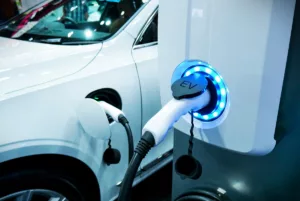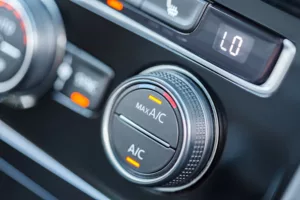Oil Change Myths vs Facts

Motor oil is the lifeblood of a vehicle’s engine. It keeps all of the various components lubricated and running smoothly. Without oil, your engine would seize up, and the vehicle would cease to operate. With this in mind, there are some common myths that circulate when it comes to motor oil. In this article, we’ll discuss 3 of those myths and provide you with the facts.
In This Article
Myth #1: You Should Change Your Oil Every 3 Months or 3,000 Miles
Myth #2: You Can’t Switch Back and Forth Between Conventional and Synthetic Motor Oils
Myth #3: If Your Oil Turns Black, It’s Time to Have it Changed
Myth #1: You Should Change Your Oil Every 3 Months or 3,000 Miles
One of the things many of us are taught when we purchased our first vehicle is that we must always change the oil every 3 months or 3,000 miles, without exception. If you failed to do so, the oil would fill with sludge and hinder the vehicle’s performance, or even damage the engine. This myth got further reinforced when you took your vehicle to the local shop for an oil change, and then left with a sticker on your windshield stating that your next oil change is due in 3 months or 3,000 miles. While this rule-of-thumb may have been useful decades ago, the truth is that for the most part, it simply doesn’t apply anymore. Between the advancement in today’s vehicle technology and the improvement in oil quality, many new vehicles can actually go 7,500 – 10,000 miles or more between oil changes. Most new vehicles even come equipped with oil-life indicators that will alert you when it’s time for a change. You can also find your vehicle’s optimal oil replacement schedule in your owner’s manual. However, an ounce of prevention is worth a pound of cure, so don’t forget to occasionally check your vehicle’s oil level just to make sure that you’re not running low.
Myth #2: You Can’t Switch Back and Forth Between Conventional and Synthetic Motor Oils
Another common misconception when it comes to motor oil is that you can’t switch back and forth between conventional and synthetic motor oil, lest you risk damaging your engine. This myth is simply not true. According to Pennzoil, “You can switch back and forth at any time. In fact, synthetic blends are simply a mixture of synthetic and conventional oils. However, it is advisable that you use the same oil for top-offs if needed, thereby giving you the best protection from the oil that you have chosen.”
Myth #3: If Your Oil Turns Black, It’s Time to Have it Changed
If you have ever opened a new quart of motor oil and poured it into your engine, you undoubtedly noticed that the fresh oil was of a nice, amber color. So naturally, when you later check your oil and see a black colored liquid on the dipstick, the common thought process is that the oil is dirty and needs to be changed. However, that’s not the case. In fact, just the opposite. HowStuffWorks explains, “If you’re using a detergent engine oil (and most modern engine oils have detergent additives), dark oil means that the oil is working just the way it’s supposed to, dispersing the tiny particles that can result in engine sludge and holding them in suspension in the oil itself so that they can’t build up. That’s why the oil appears darker, but this in no way impedes the oil from performing its normal functions of lubricating and protecting the metal surfaces inside the engine.”
Ready to wave goodbye to fleet management headaches?
Let Motorlease take the wheel! Our fleet experts will handle all your vehicle needs. Experience the joyride of turnkey fleet management!Categories


